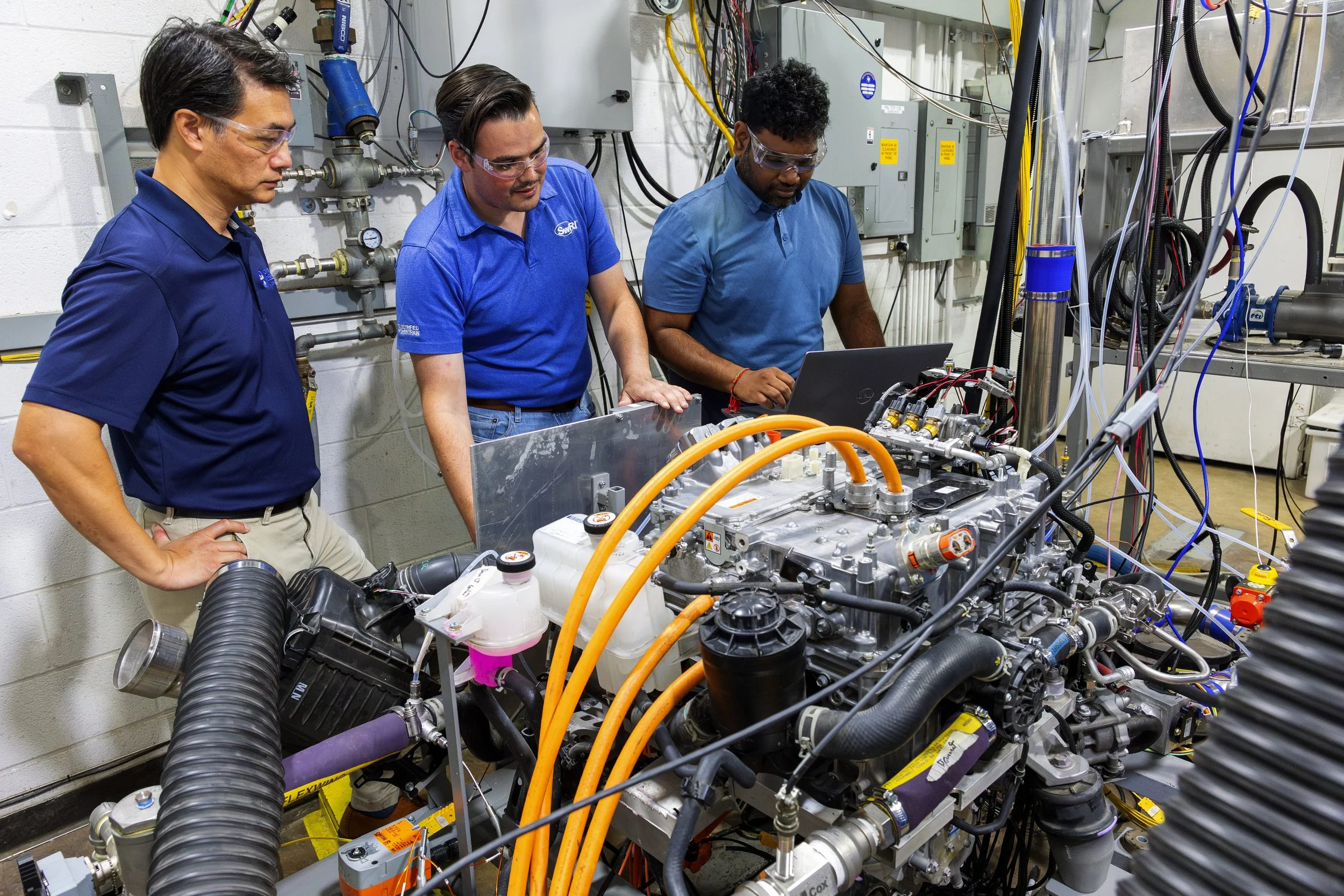Southwest Research Institute advances fuel cell testing for hydrogen-powered vehicles
Southwest Research Institute (SwRI) has developed new methods for evaluating the performance and efficiency of fuel cell technology in hydrogen-powered vehicles -without the need for test tracks or dynamometers.
A novel control system for hydrogen-powered vehicles has been developed to grant full authority over their fuel cell engines. As a result, engineers can now extract fuel cell stacks from a vehicle and rigorously test their reactions to both normal and extreme driving conditions without physically running the vehicle.
These tests are driving the creation of algorithms to help ensure the performance and efficiency of these vehicles.
Pictured from left are SwRI’s Richard Fu, Matthew Kubesh, and Venkata Chundru. Credit: Courtesy of SwRI
SwRI’s controller system precisely manages the full range of the system’s operations, such as its fuel flow rates, air flow rates and temperatures. Being able to simulate different operations on the engine directly eliminates the need to run vehicles on roads for benchmarking and analysis.
Matthew Kubesh, one of the project’s lead investigators in SwRI’s Low Carbon Technologies Section said: “Using our controller to manipulate functions, we can run the stacks under more extreme conditions than what the vehicle’s safety controls normally allow. This gives us a sense of how it might perform under stressors we couldn’t otherwise evaluate. Using this knowledge, we can scale up the results and apply them to help evaluate and improve the fuel cell stacks used for heavy-duty applications.”
The internally funded project began with a complete analysis of a hydrogen fuel cell-powered consumer vehicle to understand the internal mechanisms that run its system. The team then extracted the fuel stack from the vehicle and installed it in a controlled environment to assess performance.
SwRI has now fully analysed the stack configuration and developed new testing methods. As the project continues, SwRI is exploring new control models and potential collaboration with commercial clients to test more complex, multi-stack setups designed for heavy-duty vehicles.
“The future of fuel cells largely lies in heavy-duty applications,” said Venkata Chundru, a senior research engineer in SwRI’s Advanced Algorithms Section. “To make them commercially viable, we need controllers that can manage the system efficiently and reliably under extreme operational conditions. This project is helping us get there.”
For more information, visit www.swri.org.

